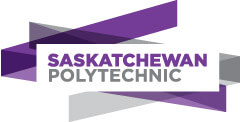About Building Systems Technician in Saskatchewan Polytechnic
Program Overview
There’s a lot of technology at work in today’s commercial and institutional buildings, from energy efficient boilers to complex HVAC systems (heating, ventilation, air conditioning). Building systems require regular, skilled maintenance—mechanical and technical. That’s why building systems technicians are always in demand. It’s a job that requires good problem-solving skills and the ability to work independently or as part of a team.
Building Systems Technician is a one-year certificate program offered at Saskatchewan Polytechnic, Regina Campus. You’ll receive comprehensive training in maintaining and operating electrical, ventilation, refrigeration and water treatment systems.
Most courses include practical activities to develop your troubleshooting skills. Time in a working facility will give students a real life experience during the second semester work placement. It’s a great way to use what you’ve learned in class and labs in a real-world setting. It’s also a way to develop contacts for possible future employment.
Certification Opportunities
Industry certifications are important to your career mobility and earning power. So, in addition to developing your knowledge and skills, Saskatchewan Polytechnic helps you prepare for industry certification exams. You’ll have an opportunity to write the Technical Safety Authority of Saskatchewan (TSASK) exams:
- 5th Class Power Engineering (5th Class Power Engineering qualifies the certificate holder to operate equipment at the Fireman Boiler Operator level)
- Refrigeration Engineer (Refrigeration Engineer qualifies the certificate holder to operate equipment at the Refrigeration Plant Operator level)
Personal study is recommended before you write any industry certification exam.
Your Career
SIAST’s Building Systems Technician certificate combined with industry certifications will open a lot of different doors. Graduates are working in building systems maintenance and operation in medium to large buildings (apartment blocks, hotels, malls, schools, health facilities, etc.). You could work in boiler and refrigeration plants, perform maintenance crew work or take charge of a building. Potential employers include building owners, property management companies and government agencies.
Academic qualification equivalents:
- Secondary School Diploma or equivalent, include one English, Grade 12 (ENG4C or ENG4U), minimum 60%
English language requirements (one of the below):
- IELTS : Overall minimum score of Band 6.5 with a minimum score of 5.0 in each component.
- TOEFL : An overall minimum score of 81 on the Internet-based Test of English
- PTE : A minimum score of 63 with minimum component scores of 50.
Saskatchewan Polytechnic Highlights
| Type |
Public |
| Campus Setting |
Urban |
| Application mode |
Online and Paper mode available |
| Graduation rate |
62% |
| Acceptance rate |
96% |
| Number of Students |
16,008 |
| Overall cost of living |
14,762 CAD |
| Academic calendar |
Semester based |
| % of International students |
6% |
| Number of campuses |
4 |
| Medium of instructions |
English |
| Undergraduate Tuition fee |
14,044 CAD |
| Postgraduate Tuition fee |
16,426 CAD |
| Cost of living |
694 -1147 CAD per month |
Saskatchewan Polytechnic First-Year Tuition Fees And Living Expenses For International Students
Over the course of one academic year, the following graph displays tuition and living expense estimates in Canadian currency for one full-time international undergraduate student. Please bear in mind that these are only estimates; actual pricing will vary depending on your needs and preferences. Other factors to consider include currency changes, visa and study authorization fees, and vacations back home.
- For international students, the overall fees will range from:-
| Particulars |
Amount |
| Administrative fees |
50.00 to 150.00 CAD |
| Application fees |
150 CAD |
| Student association fee |
95.00 to 445.00 CAD |
| Non-refundable fee at the start) |
1,000 CAD |
| Tuition fee range |
6,195 to 18,089 CAD |
| Laboratory fee |
100.00 to 409.00 CAD with no fees for
some courses which do not have a lab service. |
| Books and Supplies |
200 to 3,725 CAD |
| Technology fee |
50 to 146 CAD |
- For a student of Saskatchewan Polytechnic the required financials (Cost of Attendance) can be:-
| Description of Financials |
Amount in CAD |
| Average cost of tuition |
11245.77 CAD |
| Cost of living |
10799.39 CAD |
| Application fee |
150 CAD |
| Estimated total (per year) |
22,195.16 CAD |
